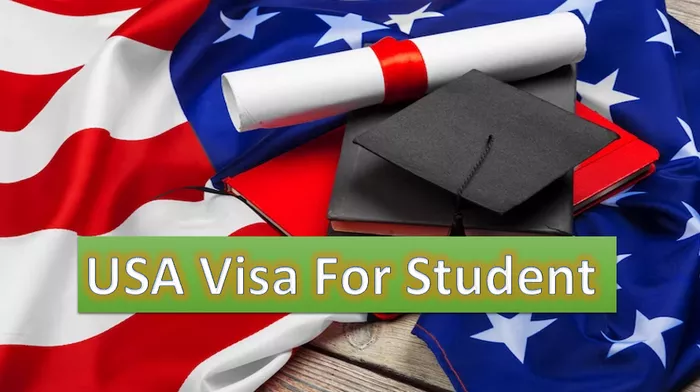Obtaining a student visa to study in the United States is a crucial step for international students seeking to pursue their academic goals in the country. The U.S. offers a diverse range of educational opportunities, from prestigious universities to specialized training programs, attracting students from around the world. However, the process of obtaining a student visa can be complex and rigorous, requiring careful attention to detail and adherence to specific requirements set forth by the U.S. government. In this comprehensive guide, we will delve into the essential requirements for obtaining a student visa in the USA, providing prospective students with valuable insights and guidance.
Understanding the Types of Student Visas
Before diving into the requirements, it’s essential to understand the different types of student visas available for international students wishing to study in the USA. The two primary categories of student visas are:
F-1 Visa: The F-1 visa is the most common type of student visa for academic studies in the USA. It is issued to individuals enrolled in a full-time academic program at an accredited institution, such as a university, college, or language school.
M-1 Visa: The M-1 visa is designed for students enrolling in vocational or non-academic programs, including technical schools and vocational colleges. This visa category is ideal for individuals pursuing courses in areas such as cosmetology, culinary arts, and mechanical trades.
General Requirements for Student Visas
While specific requirements may vary depending on the type of visa and individual circumstances, there are several general prerequisites that applicants must fulfill to obtain a student visa in the USA:
Acceptance by a SEVP-Certified Institution: Prospective students must first apply and gain acceptance to a Student and Exchange Visitor Program (SEVP)-certified institution in the USA. SEVP certification ensures that the institution meets the necessary standards to enroll international students and issue the required Form I-20, Certificate of Eligibility for Nonimmigrant Student Status.
Proof of Financial Resources: To demonstrate the ability to cover tuition fees, living expenses, and other associated costs, applicants must provide evidence of sufficient financial resources. This may include bank statements, scholarship awards, sponsorship letters, or affidavits of support from sponsors.
Intent to Return Home: Applicants must demonstrate their intent to return to their home country upon completion of their studies in the USA. This is typically established through ties to the home country, such as family, employment, or property ownership.
English Proficiency: Proficiency in the English language is essential for academic success in the USA. While not always a formal requirement for obtaining a student visa, applicants may need to demonstrate their English language skills through standardized tests such as the TOEFL or IELTS.
Health Insurance Coverage: Maintaining adequate health insurance coverage is mandatory for all international students in the USA. Applicants must provide proof of health insurance that meets the requirements set by their institution and the U.S. Department of State.
Specific Requirements for F-1 Visa Applicants
In addition to the general requirements outlined above, F-1 visa applicants must fulfill specific criteria unique to this visa category:
Form I-20: Upon acceptance to a SEVP-certified institution, applicants will receive Form I-20 from their designated school official (DSO). This form outlines the program of study, anticipated start date, and estimated expenses. Applicants must present the original Form I-20 when applying for the F-1 visa.
SEVIS Fee Payment: Before scheduling a visa interview, applicants are required to pay the Student and Exchange Visitor Information System (SEVIS) fee. This fee helps fund the SEVIS program, which tracks and monitors nonimmigrant students and exchange visitors during their stay in the USA.
Visa Application Form (DS-160): F-1 visa applicants must complete the online Nonimmigrant Visa Application Form DS-160 and submit it electronically. The DS-160 form collects biographical information and details about the applicant’s intended stay in the USA.
Visa Interview: All F-1 visa applicants between the ages of 14 and 79 are required to attend a visa interview at the U.S. embassy or consulate in their home country. During the interview, applicants will be asked about their academic plans, ties to their home country, and ability to finance their education in the USA.
Proof of English Proficiency: While not a formal requirement for the F-1 visa application, demonstrating English proficiency may strengthen an applicant’s case. Some consular officers may inquire about the applicant’s language abilities during the visa interview.
Specific Requirements for M-1 Visa Applicants
Similarly, M-1 visa applicants must meet certain criteria tailored to their visa category:
Form I-20: M-1 visa applicants must also obtain Form I-20 from a SEVP-certified vocational school or institution. This form serves as the basis for the M-1 visa application and outlines the vocational program in which the applicant intends to enroll.
SEVIS Fee Payment: Like F-1 visa applicants, M-1 visa applicants are required to pay the SEVIS fee before scheduling a visa interview.
Visa Application Form (DS-160): M-1 visa applicants must complete the DS-160 form online and submit it electronically prior to their visa interview.
Visa Interview: Attendance at a visa interview is mandatory for M-1 visa applicants as well. Consular officers will assess the applicant’s qualifications, intentions, and ability to finance their vocational education in the USA.
Proof of Enrollment in a Vocational Program: Applicants must provide evidence of acceptance and enrollment in a SEVP-certified vocational program, along with details of the program’s duration and curriculum.
Conclusion
Obtaining a student visa to study in the USA is a significant milestone for international students pursuing educational opportunities abroad. By understanding and fulfilling the necessary requirements, prospective students can navigate the visa application process with confidence and embark on their academic journey in the USA. Whether pursuing academic studies at a university or vocational training at a specialized institution, careful preparation and attention to detail are essential for a successful visa application. With proper planning and adherence to the guidelines outlined in this article, aspiring students can fulfill their dreams of studying in the United States and gaining valuable academic and cultural experiences.


